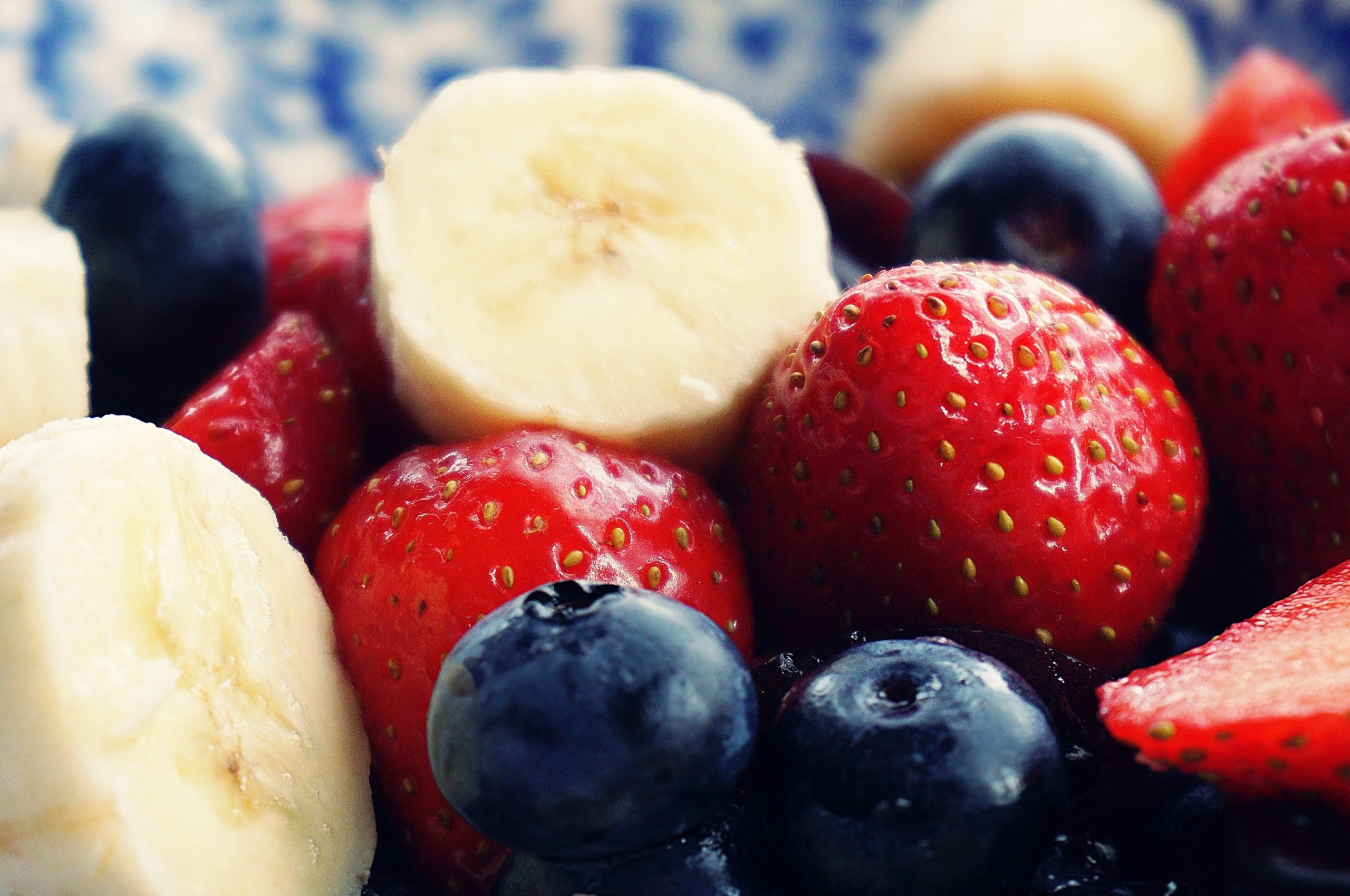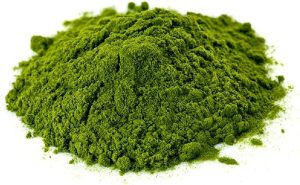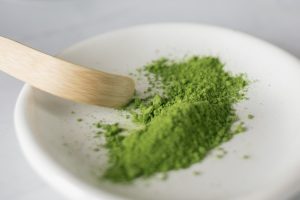
- Overview of Antioxidants
- Brief History of Antioxidants
- Functions of Antioxidants
- Recommended Daily Intake (RDI), Recommended Dietary Allowance (RDA), Adequate Intake (AI), or Reference Nutrient Intake (RNI) for Antioxidants
- Deficiency of Antioxidants
- Food Sources of Antioxidants and Where to Get It From
- Antioxidants and Its Interaction with Other Medications
- Websites and Articles to Delve into the Benefits of Antioxidants
- Disclaimer
Overview of Antioxidants
Antioxidants are compounds that combat oxidative stress by neutralizing free radicals, unstable molecules generated through normal metabolic processes and environmental exposures. Free radicals can damage cells and contribute to aging and disease.
Common antioxidants include vitamin C and vitamin E, beta-carotene, flavonoids, and polyphenols, found in fruits, vegetables, nuts, and seeds. These compounds donate electrons to stabilize free radicals, preventing cellular damage. A diet rich in antioxidants supports overall health, reducing the risk of chronic diseases like cancer and cardiovascular conditions.
While antioxidant supplements exist, obtaining these protective compounds through a varied and balanced diet is generally recommended for optimal health benefits.
Brief History of Antioxidants
The history of antioxidants traces the evolution of scientific understanding regarding their role in health and disease prevention. Here’s a brief overview:
- Early Observations (19th Century):
- Scientists observed the spoilage of food and the rusting of metals, recognizing the involvement of certain substances that could counteract these processes. However, the term “antioxidant” had not yet been coined.
- Discovery of Vitamins (Early 20th Century):
- The early 20th century saw the discovery of essential vitamins, including vitamin C (ascorbic acid) and vitamin E (tocopherol), both of which were later recognized for their antioxidant properties.
- Vitamin C and Scurvy (1920s):
- The link between vitamin C deficiency and scurvy, a disease characterized by weakened collagen and blood vessel integrity, highlighted the importance of antioxidants in maintaining health.
- Identification of Enzymatic Antioxidants (20th Century):
- Researchers identified enzymatic antioxidants like superoxide dismutase, catalase, and glutathione peroxidase, which play crucial roles in neutralizing reactive oxygen species within cells.
- Discovery of Selenium as an Antioxidant (1950s):
- Selenium was identified as an essential trace element with antioxidant properties, adding to the understanding of minerals’ role in combating oxidative stress.
- Antioxidants and Chronic Diseases (Late 20th Century):
- Research increasingly linked antioxidants to the prevention of chronic diseases, including cancer and cardiovascular conditions, sparking interest in dietary strategies to enhance antioxidant intake.
- Popularization of Antioxidant-Rich Diets (Late 20th Century):
- The concept of consuming a diet rich in fruits, vegetables, and other antioxidant-containing foods gained popularity as a means of promoting overall health and reducing disease risk.
- Scientific Advancements (21st Century):
- Ongoing research explores the diverse classes of antioxidants and their specific mechanisms in cellular protection. Antioxidants remain a focal point in understanding and addressing oxidative stress-related conditions.
The history of antioxidants reflects a continuous journey of scientific discovery, from early observations of natural processes to the identification of specific compounds that play crucial roles in maintaining cellular health and preventing diseases associated with oxidative stress.
| Time Period | Milestones and Discoveries |
|---|---|
| 19th Century | Observations of food spoilage and metal rusting; recognition of substances counteracting these processes. |
| Early 20th Century | Discovery of essential vitamins, including vitamin C and E. |
| 1920s | Link between vitamin C deficiency and scurvy, showcasing antioxidant importance. |
| 20th Century | Identification of enzymatic antioxidants like superoxide dismutase, catalase, and glutathione peroxidase. |
| 1950s | Discovery of selenium as an essential trace element with antioxidant properties. |
| Late 20th Century | Increasing research on antioxidants’ role in preventing chronic diseases; popularization of antioxidant-rich diets. |
| 21st Century | Ongoing scientific advancements exploring diverse classes of antioxidants and their specific mechanisms in cellular protection. |
Functions of Antioxidants
Antioxidants play crucial roles in the body by neutralizing or preventing the damaging effects of free radicals, unstable molecules produced during normal metabolic processes and in response to various environmental factors. The functions of antioxidants include:
- Neutralizing Free Radicals:
- Antioxidants donate electrons to unstable free radicals, stabilizing them and preventing further damage to cells, proteins, and DNA.
- Reducing Oxidative Stress:
- By counteracting oxidative stress, antioxidants help maintain the delicate balance between free radicals and the body’s defense mechanisms.
- Protecting Against Chronic Diseases:
- Antioxidants, particularly vitamins C and E, beta-carotene, and selenium, are associated with a reduced risk of chronic diseases such as cardiovascular diseases, cancer, and neurodegenerative disorders.
- Preserving Cellular Function:
- Antioxidants protect cell membranes, proteins, and enzymes from oxidative damage, preserving cellular structure and function.
- Supporting Immune System:
- Antioxidants contribute to a well-functioning immune system by protecting immune cells from oxidative damage, helping the body defend against infections and illnesses.
- Anti-Inflammatory Effects:
- Some antioxidants exhibit anti-inflammatory properties, helping to modulate inflammatory responses and reduce inflammation-related damage.
- Aiding in DNA Repair:
- Antioxidants play a role in repairing damaged DNA, supporting genomic stability and reducing the risk of mutations.
- Supporting Skin Health:
- Antioxidants, such as vitamin C and E, help protect the skin from oxidative stress caused by UV radiation and environmental pollutants, contributing to skin health and reducing premature aging.
- Enhancing Cardiovascular Health:
- Antioxidants contribute to cardiovascular health by reducing oxidative stress in blood vessels, promoting healthy blood flow, and lowering the risk of atherosclerosis.
- Protecting Vision:
- Certain antioxidants, like lutein and zeaxanthin, play a role in protecting the eyes from oxidative damage and reducing the risk of age-related macular degeneration.
- Detoxification Support:
- Antioxidants aid in the detoxification process by neutralizing harmful substances, helping the body eliminate toxins more effectively.
Including a variety of antioxidant-rich foods, such as fruits, vegetables, nuts, and seeds, in the diet is crucial for obtaining these health benefits. While antioxidant supplements are available, it’s generally recommended to obtain antioxidants through a balanced and diverse diet for optimal effectiveness and safety.
Recommended Daily Intake (RDI), Recommended Dietary Allowance (RDA), Adequate Intake (AI), or Reference Nutrient Intake (RNI) for Antioxidants
As of 2023, specific Recommended Dietary Allowance (RDA) values for antioxidants, as a broad category, were not established in the same way they are for individual nutrients like vitamins and minerals. The term “antioxidants” encompasses various compounds, and their recommended intakes are often associated with specific nutrients (such as vitamin C and vitamin E, beta-carotene, etc.) rather than a collective RDA for antioxidants.
The recommended intake for antioxidants is generally achieved through a balanced and varied diet rich in fruits, vegetables, nuts, seeds, and whole grains. While there may not be a specific RDA for antioxidants, dietary guidelines often emphasize the importance of consuming a diverse range of antioxidant-rich foods to support overall health.
It’s important to note that nutritional recommendations may evolve, and specific guidelines may be established or revised by health organizations. For the most current and accurate information regarding antioxidant intake recommendations, it is advisable to consult authoritative sources such as national health agencies, dietary guidelines, or seek guidance from registered dietitians or healthcare professionals.
Deficiency of Antioxidants
While there is no specific medical condition termed “antioxidant deficiency,” insufficient intake of antioxidants or a lack of a balanced and varied diet rich in these compounds can lead to increased oxidative stress and potential health issues. A deficiency in antioxidants may contribute to the following:
- Increased Oxidative Stress:
- Without sufficient antioxidants to neutralize free radicals, oxidative stress may rise, leading to cellular damage and an increased risk of chronic diseases.
- Accelerated Aging:
- Oxidative stress is associated with premature aging, and a lack of antioxidants may contribute to the acceleration of aging processes.
- Increased Susceptibility to Chronic Diseases:
- Antioxidants play a role in preventing or reducing the risk of chronic diseases, including cardiovascular diseases, certain cancers, and neurodegenerative disorders. Insufficient antioxidants may increase susceptibility to these conditions.
- Impaired Immune Function:
- Antioxidants support a healthy immune system by protecting immune cells from oxidative damage. A deficiency may compromise immune function, making the body more susceptible to infections.
- Skin Damage:
- Antioxidants, particularly vitamins C and E, contribute to skin health by protecting against oxidative damage caused by UV radiation and environmental pollutants. A deficiency may contribute to skin problems and premature aging.
- Reduced DNA Repair:
- Antioxidants are involved in DNA repair mechanisms. A deficiency may impair the body’s ability to repair damaged DNA, increasing the risk of mutations.
- Eye Health Issues:
- Antioxidants like lutein and zeaxanthin are crucial for eye health. Inadequate intake may contribute to an increased risk of age-related macular degeneration and other vision problems.
- Weakened Cardiovascular Health:
- Antioxidants help maintain cardiovascular health by reducing oxidative stress in blood vessels. A deficiency may contribute to endothelial dysfunction and an increased risk of atherosclerosis.
It’s important to address antioxidant deficiencies by adopting a balanced and diverse diet that includes a variety of antioxidant-rich foods. Fruits, vegetables, nuts, seeds, whole grains, and certain spices are excellent sources of antioxidants. In some cases, antioxidant supplements may be recommended, but obtaining these compounds through natural food sources is generally preferred for overall health benefits. Individuals with specific health concerns or conditions should consult with healthcare professionals for personalized guidance.
Food Sources of Antioxidants and Where to Get It From
Antioxidants are found in a variety of foods, especially fruits, vegetables, nuts, seeds, and certain oils. Including a diverse range of these antioxidant-rich foods in your diet can contribute to overall health. Here are some common food sources of antioxidants and where to find them:
- Vitamin C:
- Sources: Citrus fruits (oranges, lemons), strawberries, kiwi, bell peppers, broccoli, tomatoes.
- Vitamin E:
- Sources: Nuts (almonds, hazelnuts), seeds (sunflower seeds, almonds), spinach, broccoli, vegetable oils (sunflower oil, wheat germ oil).
- Beta-Carotene:
- Sources: Carrots, sweet potatoes, butternut squash, kale, spinach, apricots, mangoes.
- Selenium:
- Sources: Brazil nuts, sunflower seeds, fish (tuna, halibut), turkey, chicken, whole grains.
- Flavonoids:
- Sources: Berries (blueberries, strawberries), citrus fruits, apples, onions, tea (green tea, black tea), dark chocolate.
- Polyphenols:
- Sources: Grapes (and red wine), apples, berries, dark chocolate, green tea, coffee, olive oil.
- Zinc:
- Sources: Meat (beef, lamb), shellfish (oysters, crab), beans, nuts (cashews, almonds), dairy products.
- Lutein and Zeaxanthin:
- Sources: Leafy green vegetables (kale, spinach, collard greens), broccoli, eggs.
- Coenzyme Q10 (CoQ10):
- Sources: Fish (salmon, mackerel), meat (pork, beef), whole grains, nuts (especially peanuts).
- Astaxanthin:
- Sources: Salmon, shrimp, krill, algae.
- Manganese:
- Sources: Whole grains, nuts (pecans, almonds), legumes, tea.
Including a variety of these foods in your diet can provide a broad spectrum of antioxidants, each offering unique health benefits. Consider incorporating colorful fruits and vegetables, whole grains, nuts, seeds, and lean proteins into your meals to ensure a well-rounded intake of antioxidants. Additionally, adopting a diverse and balanced diet supports overall nutrition and well-being.
Antioxidants and Its Interaction with Other Medications
While antioxidants from food sources are generally considered safe and beneficial for health, it’s important to be aware of potential interactions between antioxidant supplements and certain medications. Antioxidants can influence various physiological processes, and their interactions with medications may affect drug metabolism, efficacy, or safety. Here are some considerations:
- Vitamin E and Blood-Thinning Medications:
- Vitamin E has mild anticoagulant properties. When taken in high doses, it may enhance the effects of blood-thinning medications like warfarin, increasing the risk of bleeding. It’s crucial to inform your healthcare provider if you are taking both vitamin E supplements and anticoagulant medications.
- Vitamin C and Aspirin:
- High doses of vitamin C may increase the absorption of aspirin, potentially affecting its blood-thinning effects. Individuals on aspirin therapy should discuss vitamin C supplementation with their healthcare provider.
- Ginkgo Biloba and Anticoagulants:
- Ginkgo biloba, often considered an herbal antioxidant, may interact with anticoagulant medications, increasing the risk of bleeding. It’s important to notify your healthcare provider if you are using ginkgo biloba supplements and taking blood thinners.
- Selenium and Thyroid Medications:
- Selenium supplements may interact with certain thyroid medications. Excessive selenium intake can affect thyroid function, so it’s advisable to discuss selenium supplementation with your healthcare provider if you are taking thyroid medications.
- Coenzyme Q10 (CoQ10) and Statins:
- Statin medications, used to lower cholesterol, can reduce CoQ10 levels in the body. Some individuals take CoQ10 supplements to counteract this effect. However, it’s important to consult with a healthcare provider before supplementing with CoQ10, especially if taking statin medications.
- Antioxidants and Chemotherapy:
- High-dose antioxidant supplements, particularly vitamin C and vitamin E, may interfere with the efficacy of certain chemotherapy drugs. Cancer patients undergoing chemotherapy should consult their oncologist before taking antioxidant supplements.
- Beta-Carotene and Smoking:
- High-dose beta-carotene supplements have been associated with an increased risk of lung cancer in smokers. Smokers should avoid beta-carotene supplements without consulting their healthcare provider.
Always consult with your healthcare provider before starting any new supplements, especially if you are taking medications. They can provide personalized advice based on your health condition, medications, and potential interactions. Additionally, obtaining antioxidants from a varied diet of whole foods is generally considered safe and beneficial.
Websites and Articles to Delve into the Benefits of Antioxidants
Disclaimer
The information is solely provided for educational purposes. It is not intended to diagnose, treat, cure, or prevent any disease. Seek the advice of your physician or qualified healthcare provider with any questions you may have regarding a medical condition at all times. Never disregard professional medical advice because of something you have read or learned from this article.






